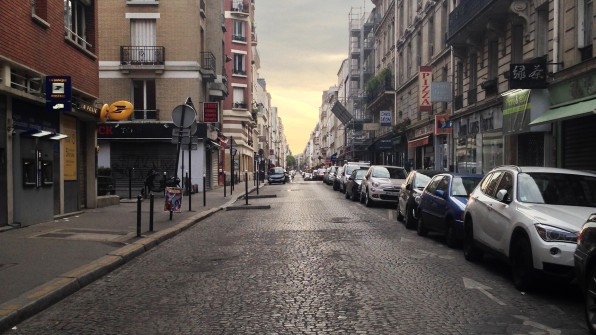The End Is In Sight For The Internal Combustion Engine In France
When it comes to carbon-reduction strategies, France has a reputation for not messing around. Anne Hidalgo, mayor of Paris and chair of the C40 Cities Climate Leadership Group has, throughout her tenure, ambitiously pushed Paris toward becoming a “post-car” city: In January, the city banned old diesel cars from the streets, and in the fall of 2016, a main thoroughfare along the banks of the Seine was closed permanently to cars, making way for a new pedestrian space.
While cities like London and Barcelona have started taking similar vehicle-limiting measures, Paris has always been ahead of the curve. And now, under the leadership of the newly elected president, Emmanuel Macron, the whole country is catching up to its largest city. Macron has pledged to make the country carbon neutral by 2050. To that end, the new environment minister, Nicolas Hulot, announced that France will ban all petrol and diesel vehicles by 2040.
Acknowledging that the ban would put an innovation strain on French car manufacturers, Hulot also said that they were capable of making the switch. “Our [car]makers have enough ideas in the drawer to nurture and bring about this promise,” Hulot told The Guardian. The announcement from France comes hot on the heels of relevant news out of the Swedish manufacturer Volvo, which will, after 2019, make only electric and hybrid vehicles. And the French automotive sector is already in a good position to bring about the terms of the ban: According to the European Environment Agency, the French manufacturers Peugeot, Citroën, and Renault ranked first, second, and third, relatively, on the 2016 list of low-emitting vehicles.

The time frame of the ban, too, falls within larger trends around electric and low-carbon vehicles: A new report from Bloomberg New Energy Finance found that electric vehicles are on track to make up 54% of new car sales by 2040 (a significant jump from their previous forecast of 35%). By 2040, the report added, electric vehicles will displace 8 million barrels of transport fuel each day. Another report estimates that by 2030, the shift to autonomous, on-demand vehicles–which work better with electric technology–will make rides in electric cars cheaper than driving conventional cars, dramatically accelerating the growth of EVs.
Though the internal combustion vehicle ban is a drastic step for France, other countries are setting even steeper goals. By 2025, Norwegians will navigate only by electric or plug-in hybrid vehicles, and other countries, like India and the Netherlands, are contemplating similar phase-outs.
In announcing the ban, Hulot insisted that it will function primarily as a public-health and carbon-cutting measure, but the signal such a strong country-level regulation sends to car manufacturers is unmistakable. With Volvo already initiating a full shift to electric and hybrid models, others are likely to follow—and it’s possible (and hopeful) that by 2040, a ban on petrol and diesel will exist merely as a pro-forma regulation.
The country’s new environmental minister announced that by 2040, all diesel and petrol vehicles will be banned from the roads in an effort to curb carbon emissions.
When it comes to carbon-reduction strategies, France has a reputation for not messing around. Anne Hidalgo, mayor of Paris and chair of the C40 Cities Climate Leadership Group has, throughout her tenure, ambitiously pushed Paris toward becoming a “post-car” city: In January, the city banned old diesel cars from the streets, and in the fall of 2016, a main thoroughfare along the banks of the Seine was closed permanently to cars, making way for a new pedestrian space.
Fast Company , Read Full Story
(28)


